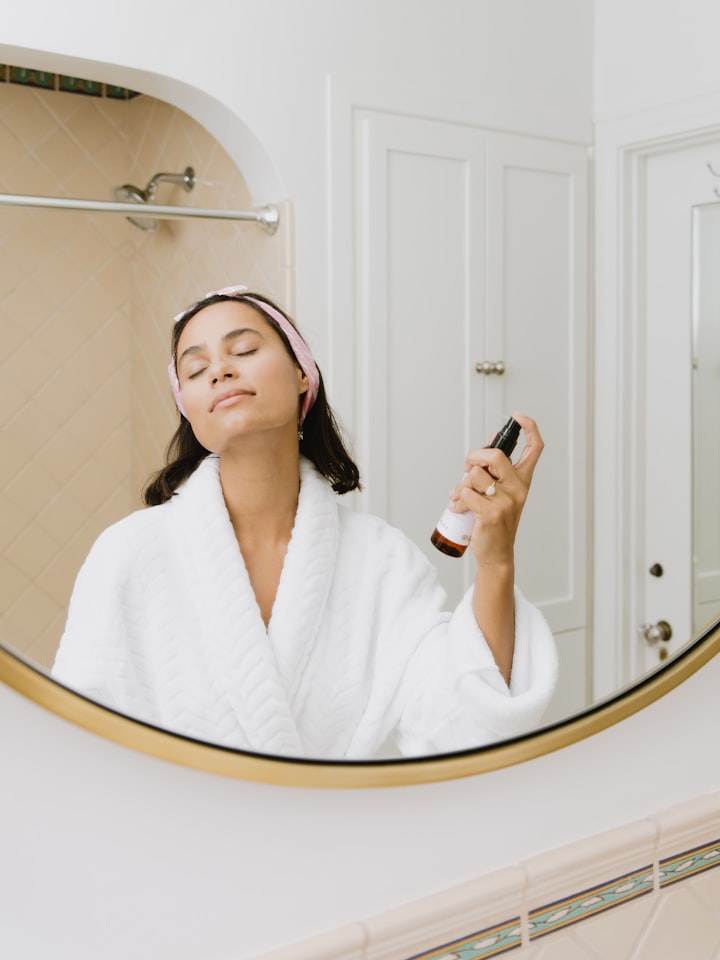7 Skincare Mints Almost Everyone Believes
Debunking Common Skincare Myths

7 Skincare Mints Almost Everyone Believes
Debunking Common Skincare Myths
In the realm of skincare, myths and misconceptions abound, making it challenging to distinguish between effective practices and mere fads. In this article, we aim to debunk seven common skincare myths that have gained popularity over time. By separating fact from fiction, we hope to provide you with reliable information that can help you make informed decisions about your skincare routine. Let's dive in!
Myth: Pores can be opened and closed.
One of the most prevalent misconceptions is that pores can be opened and closed. The truth is that pores do not have muscles to expand or contract. Their size is primarily determined by genetics, and factors like age, sun damage, and clogged pores can make them appear larger. However, certain skincare ingredients like salicylic acid and retinoids can help minimize the appearance of pores by keeping them clear and reducing inflammation.
Myth: Natural skincare products are always better.
While the allure of natural skincare products is understandable, it is important to note that natural doesn't always mean better or safer. Many synthetic ingredients have been thoroughly tested and proven effective, while some natural substances can cause skin irritation or allergic reactions. Ultimately, the key is to find products that work for your skin type, regardless of whether they are natural or synthetic
Myth: Expensive products are more effective.
Price does not necessarily equate to efficacy in the skincare world. There are numerous affordable skincare products that deliver excellent results, just as there are expensive ones that may not live up to their price tag. The effectiveness of a product depends on its formulation, active ingredients, and suitability for your skin type. Don't be swayed by price alone—instead, focus on understanding the ingredients and researching customer reviews.
Myth: Oily skin doesn't need moisturizer.
Contrary to popular belief, oily skin needs moisturization too. Skipping moisturizer can lead to dehydration, which can trigger increased oil production as the skin tries to compensate for the lack of moisture. Look for lightweight, oil-free moisturizers specifically formulated for oily skin. These moisturizers can help balance oil production and provide necessary hydration without clogging pores.
Myth: Sunscreen is only necessary on sunny days.
Sunscreen is a skincare essential that should be incorporated into your routine regardless of the weather or season. The sun's harmful UV rays can penetrate clouds and windows, leading to skin damage and premature aging. To effectively protect your skin, choose a broad-spectrum sunscreen with at least SPF 30 and apply it generously every day, even when it's cloudy or you're indoors.
Myth: Scrubbing your face vigorously will make it cleaner.
Scrubbing your face aggressively with harsh scrubs or brushes can actually do more harm than good. Over-exfoliating can strip away the skin's protective barrier, leading to dryness, irritation, and even breakouts. Instead, opt for gentle exfoliation methods, such as chemical exfoliants like AHAs or BHAs, or mild physical exfoliants. Remember to exfoliate no more than two to three times a week, depending on your skin's tolerance.
Myth: Skincare products can erase wrinkles completely.
While skincare products can certainly improve the appearance of wrinkles and fine lines, they cannot completely erase them. Wrinkles are a natural part of the aging process and result from a combination of factors such as genetics, sun exposure, and collagen loss. Effective anti-aging products can help minimize the appearance of wrinkles by hydrating the skin, promoting collagen production, and providing antioxidants. However, more invasive treatments like injectables or laser resurfacing may be required for significant wrinkle reduction.
Navigating the world of skincare can be challenging, especially with the abundance of myths and misconceptions surrounding it. By debunking these seven common skincare myths, we hope to empower you with accurate information to make informed decisions about your skincare routine. Remember, it's essential to tailor your skincare practices to your unique skin type and concerns, and consult a dermatologist for personalized advice. With a solid foundation of skincare knowledge, you can achieve healthier, more radiant skin
Navigating the world of skincare can be challenging, especially with the abundance of myths and misconceptions surrounding it. However, armed with the knowledge gained from debunking these seven common skincare myths, you can now approach your skincare routine with more confidence and clarity.
It is crucial to understand that skincare is not a one-size-fits-all approach. Each individual has unique skin characteristics, concerns, and needs. What works for one person may not work for another. By debunking these myths, we encourage you to embrace a more personalized and informed approach to skincare.
Remember to prioritize scientific evidence and reliable sources when seeking skincare advice. While anecdotes and testimonials can be helpful, they should be considered alongside evidence-based research. Dermatologists and skincare professionals are valuable resources who can provide personalized recommendations based on your specific skin type, concerns, and goals.
Additionally, maintaining consistency in your skincare routine is essential. Skincare products often require consistent use over a period of time to yield visible results. Don't expect overnight miracles or quick fixes. Patience and perseverance are key when it comes to achieving healthier, more radiant skin.
Furthermore, it's important to emphasize that skincare is not solely reliant on topical products. Taking care of your skin goes beyond what you apply externally. Factors such as a balanced diet, regular exercise, proper hydration, and adequate sleep can significantly impact the health and appearance of your skin. A holistic approach to skincare that encompasses lifestyle factors will yield more comprehensive and long-lasting results.
Lastly, remember that self-care extends beyond physical appearances. While skincare can enhance your outer beauty, it is equally important to nurture your mental and emotional well-being. Taking time for self-care activities, managing stress levels, and practicing self-compassion contribute to overall skin health and radiance.
Debunking these common skincare myths empowers you to make more informed choices about your skincare routine. By understanding the truth behind these misconceptions, you can tailor your skincare practices to suit your unique needs, seek reliable information, and prioritize self-care. With this newfound knowledge, you are well-equipped to embark on a skincare journey that promotes healthy, glowing skin from the inside out.
About the Creator
Bridget Dyke
As a passionate writer of fiction and general articles, I invite you to embark on an extraordinary literary journey with me. With immersive stories and thought-provoking articles that will captivate your mind and touch your soul.






Comments
There are no comments for this story
Be the first to respond and start the conversation.